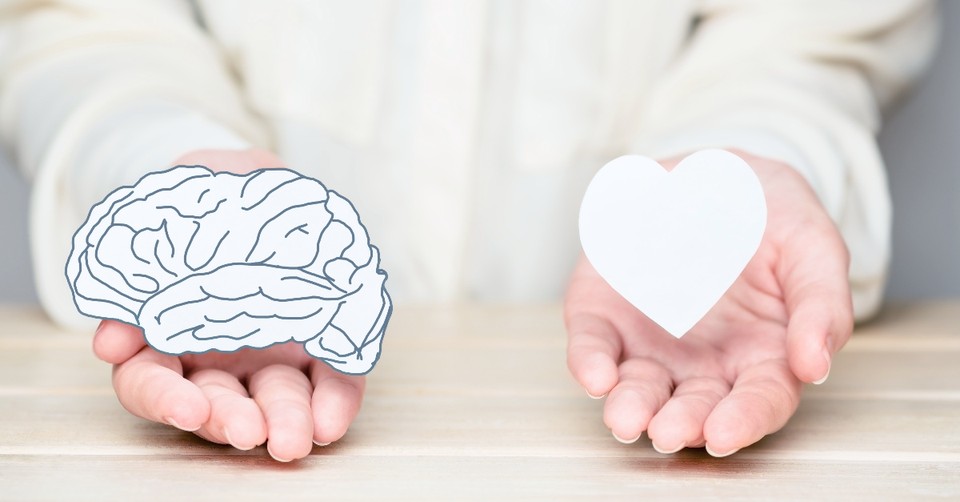A Few Not-So Stereotypical Thoughts on OCD

I suffer from Obsessive-Compulsive Disorder (OCD). On most days, the definition of “suffer” seems too light.
Particularly, I struggle with Intrusive Thought OCD. My brain has irrational thoughts like everyone else’s, but my irrational thoughts are “sticky,” as my therapist says. I can’t shake the thoughts, believing I mean every ounce of their disgust. Thus, my adrenal glands think it’s time to ignite fight or flight—that I should panic due to this mental identity crisis.
In short, I dissect and then battle every tiny thought that enters my mind, and the unwanted thoughts I can’t tame cause such panic within my brain’s neurotransmitters that my body can feel the physical weight of fear and shame.
OCD is much heavier than its stereotype, and I would like to honor sufferers and their loved ones by breaking down the different Intrusive Thought categories and dismantling common OCD misconceptions.
Intrusive Thought OCD includes four separate categories:
1. Mental Thoughts & Taboo Rituals
Also known as “Religious OCD,” Mental Thoughts & Taboo Rituals OCD makes people question their heart’s true intentions, especially regarding their faith. A sufferer’s common fears include thinking they’ve blasphemed God, believing because they lied, God will make them mute, wondering if since they skipped church, God will kill a loved one in a car crash, etc.
I suffer from Mental Thoughts & Taboo Rituals OCD, which was catalyzed by an unhealthy church culture I grew up in. But take heart, friend. If you are afraid of losing God, your heart is in the right place. It’s pursuing God and desperately practicing hope in him and his goodness.
“Be strong and courageous. Do not be afraid or terrified because of them, for the LORD your God goes with you; he will never leave you or forsake you” Deuteronomy 31:6
2. Symmetry
Less than 5% of those diagnosed with OCD suffer from Symmetry intrusive thoughts. However, this is where the stereotype of “liking” cleanliness and orderliness grew from.
Those who suffer from Symmetry OCD don’t enjoy color-coordinating their clothes or straightening the picture frames. This doesn’t come from a place of enjoyment or peace but from a place of irrational fears that seem quite sane, even tangible, at times.
Often, a person with Symmetry OCD believes if they don’t straighten the crooked picture frame, it could fall off the wall and kill their family member who was walking under it. Thus, they can immediately fix the picture frame or become a potential murderer. Yes, these are irrational thoughts, and many times, sufferers know they are irrational, but the thoughts seem so real and tangible that they feel they have no choice but to straighten the picture frame—and all the others—over and over again—every time—no matter what.
After all, it seems safer to be obsessed with fixing the picture frame than standing by and being the reason your baby sister dies, right?
3. Contamination
I suffered from Contamination intrusive thoughts for years, but the thoughts were manageable. (Though I did give myself eczema at age nine because I used so much hand sanitizer.) However, once COVID-19 hit, manageable became impossible.
I was afraid to leave the house, even to complete a mobile pick-up order for groceries (when I would have no physical contact with anyone). Shoes terrified me—I didn’t know where people’s shoes had been, what bathroom floors they had meandered on, how many cigarette butts they had touched, etc. There was no way I was letting shoes near me!
After exposure therapy and medication, I am much better now. But I still struggle with being near anyone who has on a band-aid (because I don’t know if their blood is contaminated), and when someone sneezes near me, I typically have an internal meltdown.
Meanwhile, thanks to Christian counseling, I have a few tools I use when I panic about germs:
I ask myself, “Have I just used the bathroom, or am I about to eat/touch my face?” If the answer is no, I don’t rush to find germ-X or the nearest sink. I simply wait until I’ve gotten back into my car to use my sanitizer or get home and wash my hands with soap and warm water.
I reinforce thoughts I know to be logical: “Peyton, people walk around with band-aids on their fingers and elbows all the time. It has yet to cause such a ruckus that the CDC has mandated a more intense method of covering mild wounds. You are okay.”
4. Harm
Following Mental Thoughts & Taboo Rituals, Harm intrusive thoughts are the most debilitating for me. In short, you have irrational thoughts that you might or have hurt someone in a myriad of ways:
–You turn your car around and drive back down the road to ensure you didn’t hit a pedestrian or run another car off the road.
–You replay the scene of changing your little cousin’s diaper because you are terrified you inappropriately touched them while cleaning their bottom.
–You’re afraid when you accidentally bumped into a man in the store that you meant to, potentially harming your relationship with your boyfriend or husband.
Harm OCD is vile. It causes sufferers to believe they might be murderers, rapists, marriage ruin-ers, etc. And if you think I’m exaggerating, I have many friends and fellow sufferers, even licensed therapists, who will vouch for how often Harm OCD patients fight these terrifying, debilitating ideas.
Most OCD sufferers battle one of the four intrusive thought categories, and a few battle two. I battle three: Mental Thoughts & Taboo Rituals, Contamination, and Harm. And if I’m being honest, there are days when I ask God why he allows my mind to be my living hell, why the one place I hate is the place I can never escape—my own mind.
Yet, I must consider redemption, how glorious heaven will be when I not only have a new body but a new mind. I must recall what sacrifice looks like. Perhaps my suffering for the Gospel isn’t ancient martyrdom but sharing my deepest fear that I am my darkest thoughts so others struggling with OCD can breathe and say to themselves, “So, I’m not crazy… I’m not the only one… I’m not my thoughts... God hasn't gone anywhere.”
After all, what is healing without disease? Good without bad? Me without my journey? God apart from making beauty from ashes?
Take heart, dear one. God saves the heart, seals the soul, and promises to one day free us of our minds.
*I am not a mental health professional. However, if you believe you are experiencing Intrusive Thought OCD, I encourage you to reach out to a trusted mentor, and I highly recommend Christian therapy.
Photo Credit: ©iStock/Getty Images Plus/Melissandra

Originally published October 12, 2023.





